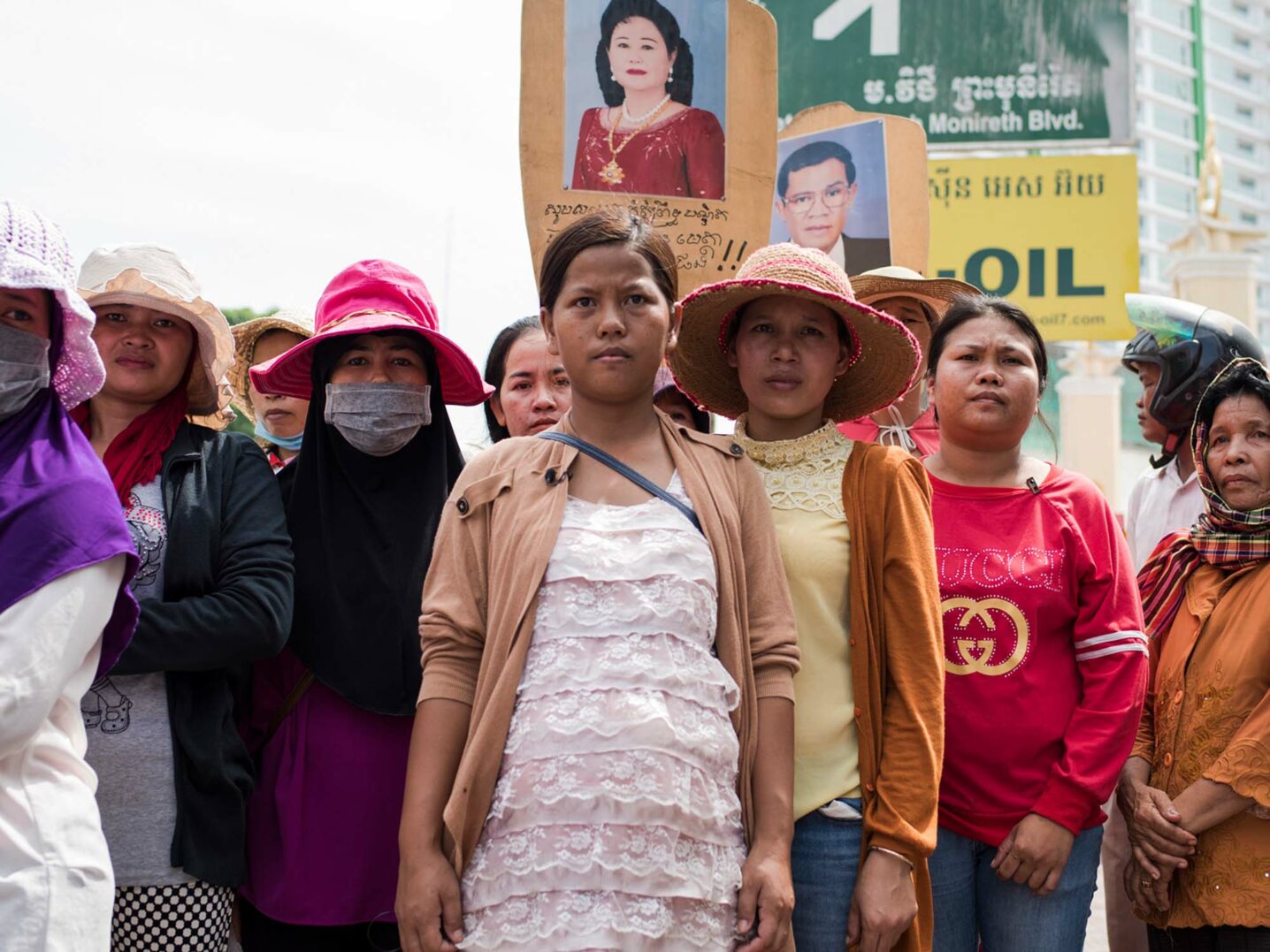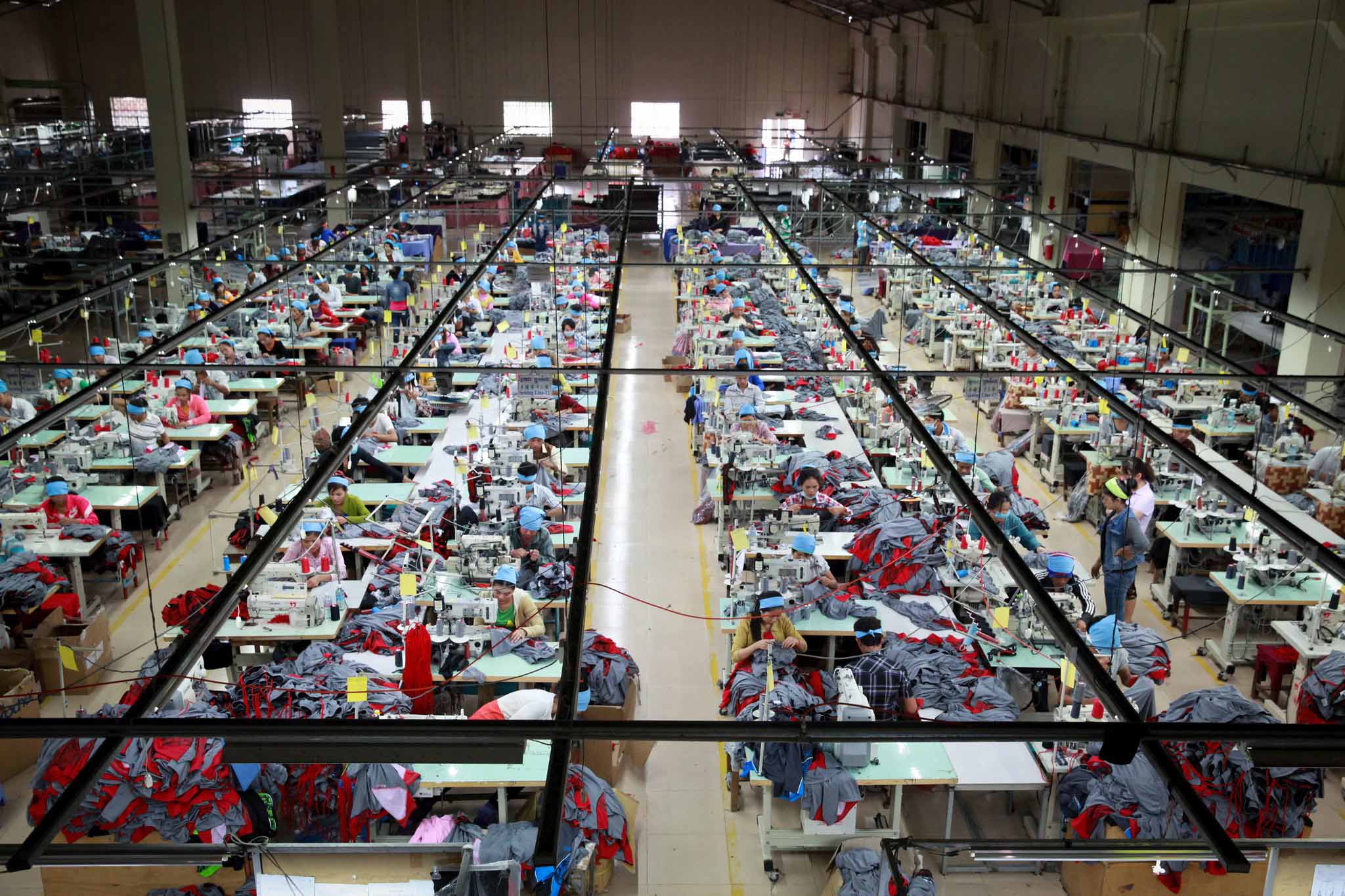Nygard International
Wage theft and unpaid severance
Not too long ago, Nygard International, a privately held women’s fashion clothing company, was Canada’s largest producer of women’s apparel. Founded by Peter Nygard, with offices located in Winnipeg, Toronto, and New York, Nygard’s clothing brands included well known Tan Jay, Alia, and the Bianca Nygard line, and were sold in major department stores and stand-alone retail outlets across Canada and the United States. The company filed for bankruptcy in 2020 in Canada and the United States.[1]

Summary
- In 2016, 208 garment workers were suddenly left unemployed when the Chung Fai Knitwear Factory in Phnom Penh, Cambodia closed without warning.
- Workers were never paid their legally owed wages, severance, and other legal entitlements associated with the closure, causing the workers to face severe economic hardship.[2]
- According to import records and worker testimonies, the factory produced Nygard clothing; however, Nygard denied any relationship with the factory and did not assume any financial or moral responsibility to ensure workers received what they were legally owed.
The Detail
Wages in the global garment industry have remained at poverty levels, despite clothing brands’ purported commitment to ensure workers in their supply chains are paid enough to cover their basic needs. To compound this systemic issue, when garment workers are dismissed due to a sudden and unannounced factory closure, they are frequently left without being paid their legally owed wages, severance, and other legal entitlements. Such ‘wage theft’ is often brought on by global brands’ own purchasing practices – brands’ failure to pay the factories that produce their clothing enough to cover production costs. This causes manufacturing facilities to decrease their own bottom line, often at the expense of labour rights.[3] Coupled with subsistence level wages, the failure to pay workers their legal entitlements leaves workers in dire economic situations, unable to meet their basic needs.
Unauthorized subcontracting facilities, which are commonplace in many garment producing countries, including Cambodia, also contribute to the occurrence of wage theft; factories that are unable to meet brands’ high production demands often contract other facilities to help complete the work. Due to a lack of monitoring and oversight at many of these sites, labour abuses frequently occur.[4]
Brands sourcing from a factory have a responsibility, according to the UN Guiding Principles on Business and Human Rights, to take steps to ensure that the workers who produce their clothing are remunerated adequately. [5] The right to a living wage – to earn enough to ensure a decent standard of life – is a fundamental human right.[6] Studies carried out by the Worker Rights Consortium on the non-payment of severance in the garment and footwear sectors shows that failure to pay proper severance, especially in countries which lack employment insurance safety nets, leads many workers to struggle to pay for basic needs – an issue further highlighted by the factory closures caused by the COVID-19 pandemic.[7]
Unfortunately, despite stated commitments in many brands’ codes of conduct to ensure workers in their supply chain are properly remunerated, brands do not assume this responsibility, and none pay a living wage throughout their supply chain.[8]
On June 27, 2016, 208 garment workers were suddenly left unemployed when the Chung Fai Knitwear Factory in Phnom Penh, Cambodia closed without warning. The workers, including 126 who had laboured there for more than ten years,[9] were not paid their June wages or any of the legally required[10] payments associated with an unannounced closure, according to Cambodian Law.[11] Import records and worker testimonies showed that the factory produced Nygard clothing; however, Nygard denied any relationship with the factory and would not assume responsibility to pay the workers what they were legally owed. The workers have never received their full compensation.
While the factory owner notified workers that they could sell the factory’s remaining assets in lieu of payment, many of the more expensive assets had previously been removed, leaving a value of less than 10%[12] of what the workers were owed. In an attempt to protect the remaining assets, the workers organized a 24-hour vigil outside of the factory to prevent the removal of further equipment. They also filed an injunction with the Phnom Penh Municipal Court to ensure the remaining equipment in the factory was not removed or sold by the owner. Another complaint was filed with the labour dispute resolution branch of the Ministry of Labour who confirmed that the workers were entitled to various payments under Cambodian law.[13] This led the workers to file a formal complaint in the Municipal Court for their final month’s wages and severance pay for years worked – calculated to be a total of USD$550,000 for all the 208 workers.
Over a month later, however, the court indicated that the preparatory hearing could not proceed because the factory was closed and the court could not locate the owner, and that it would first be the workers’ responsibility to attempt to locate him.[14]

The workers organized numerous protests to denounce the slow-moving legal procedures and to pressure the three brands alleged to be sourcing from the factory – Nygard International and two UK brands, Marks & Spencer and Bonmarché – to take responsibility for the factory’s failure to pay workers. They also sought support from international labour rights organizations, including the Clean Clothes Campaign, Labour Behind the Label, Workers United Canada and the Maquila Solidarity Network who launched a global campaign.[15] Despite this continued pressure and letters from the workers and labour rights organizations, all three brands denied having a direct contractual relationship with the Chung Fai Knitwear Factory and therefore shirked responsibility for ensuring the 208 workers received what they were legally owed.
For its part, Nygard skirted responsibility[16] for the subcontract despite worker testimonies and import records that showed Nygard received 29 clothing shipments from the factory between April 2013 through April 2016.[17] Workers were left with severe economic hardship, often unable to find subsequent work, unable to pay for rent, health care and many had to take out loans, accumulating debt.[18]
